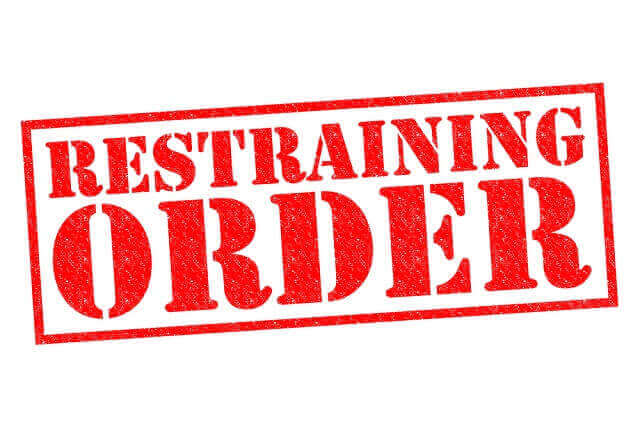Four Things to Know About Violating a Restraining Order
 Restraining orders, also referred to as protective orders, are not just pieces of paper. They offer legal protection to abuse victims, and to those who feel that their lives are threatened. While Hollywood may make restraining orders seem as though they are easy to obtain, in reality, the victim must take several steps to prove the legitimacy of that order. If someone has placed a restraining order against you, then you will be served with that order, as well as instructions from the court.
Restraining orders, also referred to as protective orders, are not just pieces of paper. They offer legal protection to abuse victims, and to those who feel that their lives are threatened. While Hollywood may make restraining orders seem as though they are easy to obtain, in reality, the victim must take several steps to prove the legitimacy of that order. If someone has placed a restraining order against you, then you will be served with that order, as well as instructions from the court.
It is important to follow the instructions given to you in the restraining order – and more importantly, know what will happen if you choose to violate the court order.
What Happens When You Violate a Restraining Order?
If you violate a protective order, then there are four things to know:
- You will be held in contempt of court. Restraining orders are issued by the court; if you violate that protective order, then you may be held in contempt of court. A judge issues protective orders in conjunction with civil and criminal cases – and often, in domestic violence situations. Even if the order was issued for a civil matter, violating that order is a crime.
- There are things that the prosecution must prove first. For the prosecution to convict you of violating a protective order, there are things that they must prove first. These include: (i) showing that there was a valid protective order in place that was issued by a judge; (ii) showing that you had knowledge of that protective order; and (iii) showing that you intentionally violated the terms of the order.
- There are defenses available. If you have violated a protective order, then you still have defense options. If you did not know that there was a protective order, for example, then the courts cannot hold you in contempt for violating it. Also, if the victim approached you or showed up on your private property, then you are not in violation of a protective order – because you did not knowingly or intentionally violate the order. Consider the following example: You are required to stay 100 feet away from your wife. However, your wife crosses paths with you at the local grocery store. You did not intentionally meet here there, nor did you know she was there.
- There are penalties if you are found in contempt. If you are guilty of violating a protective order, then you will face harsh penalties. Protective order violations are typically misdemeanor offenses, but the fines can be extensive – you could even face jail time. Also, there are instances where the protective order violation can be escalated to a felony.
Speak with a Defense Attorney Right Away Regarding Your Restraining Order Violation
If you have been arrested for a protective order violation, then you need an attorney with extensive knowledge and insight into defenses strategies for this very charge. The team at New Mexico Criminal Law Offices is here to help. We understand the complexities of protective order violations, and we also understand that not all violations are intentional. Let us protect your rights and help you. Schedule a free consultation now by calling us at 505-375-4767, or fill out our online contact form with your questions.